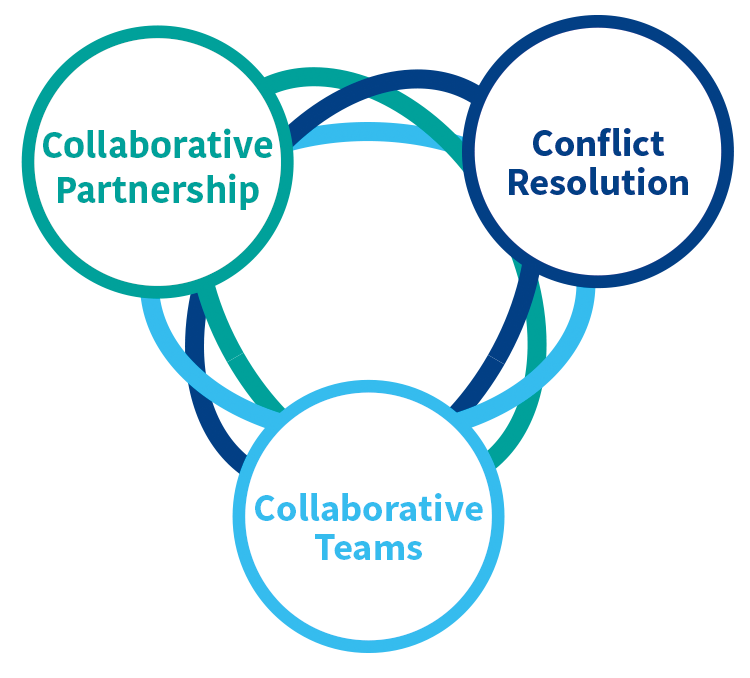Services

Advice, Training, and Mentorship
As commissioners and providers of health and social care strive to increase integration across services and disciplines, they can experience barriers at a systems or operational level, meaning collaboration rests as policy, rather than applied to practice. Based on my professional experience, and my research, and from listening to you, I provide advice, training, and mentorship to inform and improve your business.
The diversity within and across health and care organisations requires a bespoke model. Using a problem-solving process, I work with you to understand your goals and aspirations for collaborative partnerships and multidisciplinary team working to identify what is desirable and achievable for you to progress strategic change.
Aimed at Senior management, commissioners and providers, Management of NHS and Primary Care Trusts, Directors of Care homes and Local Authorities, and leads of Third Sector businesses.
Questions you may consider are:
- Do we want to increase collaborative leadership?
- Could transition of care improve through greater collaboration?
- What does our existing strategy say about partnership working?
- Are our values and beliefs shared with partner organisations?
Consultation:
- Strategic collaboration
- Procedural challenges
- Collaborative leadership
Benefits:
- Understanding of strategic planning
- Framework for operationalising collaborative working
- Development for collaborative leadership
What you learn from the consultation process:
- Stakeholder engagement for collaboration
- Where shared vision and objectives can best be achieved
- The influence of collaborative leadership on change
Professionals can feel overwhelmed with change, resulting in shared responsibility defaulting to fragmented decision making and unresolved issues. I know from my work with organisational teams and from my research that individuals feel supported and engaged when they view themselves as an active member of the collaborative team. Despite challenges and setbacks, teams that work well together demonstrate motivation, and a resolve to overcome adversity; behaviour that drives collaboration.
Aimed at leaders and team members in: Primary care, Hospitals, and Community organisations
Questions you may consider are:
- Are my teams struggling to achieve shared goals?
- Does team competitiveness get in the way of team functioning?
- Has team enthusiasm waned over time?
- Are team disputes contributing to relationship difficulties?
Initial consultation
I will work with you and a section of your board or team members to understand your current position on multidisciplinary team working, to understand barriers and enablers and opportunities for improvement. Based on your requirements, I will make suggestions and prepare a training package for your team(s)
Training program:
Benefits:
- Increase understanding of team behaviour across boundaries
- Utilise diversity and conflict to improve relationships
- Increase team communication to inform decision making
- Understand the advantage of interprofessional diversity on team efficiency
What you learn from the training:
- The strength of using problems to build team engagement
- Replacing competition with shared goals
- Understand the assets of working across boundaries
- Drawing on collective motivation to overcome challenges
Conflict, in organisations and or teams, threatens the effectiveness of collaborative working; leading to professional opposition and team dysfunction. Resolving disputes quickly, and effectively, provides parties with the opportunity to reflect, resolve, and to move forward; avoiding any negativity impacting on professional function or personal development.
As a trained mediator I work with you to identify and resolve issues of conflict, using a tested and effective process to create harmony through workable mutually agreeable solutions.
Aimed at: Clients in healthcare organisations, departments or sectors.
Questions you may consider are:
- Is conflict preventing safe practice?
- Is confrontation hampering innovation?
- Are disputes leading to disengagement?
- Do you avoid some conversations to prevent conflict?
Mediation:
Benefits:
- Increased performance
- Collaborative approach to working
- Improved capacity to resolve conflict
What you can expect from conflict resolution:
- An effective alternative to grievance procedure
- An unbiased, solution focussed approach to explore conflict and its impact on functioning
- Harmony, trust and commitment as a replacement for conflict dysfunction
- Opportunities to build common goals and relationships
- Increased motivation in using conflict resolution techniques in the workplace
What you receive:
One or more of the following options:
- Resolution meeting with the mediator, line manager and employee(s)
- Mediation by mediator or mediation team
- Conflict coaching
The resolution meeting is an early attempt to identify and resolve a disagreement, conflict or dispute to enable clients to discuss issues in a constructive, supportive and empathetic situation.
I am available as a:
Researcher: I offer my research experience to Universities, Industries and Organisations as a partner in collaborative research projects.
Speaker: As a champion for collaborative working
Mentor/Coach for Collaborative Leadership and Interprofessional Education
To support the above, I can provide organisations with e-books on Collaborative working and Interprofessional learning
Style and Delivery
I apply a facilitated, empathic style to my work to engage clients in communication; adopting a pragmatic approach to ensure the focus remains on achieving collaboration.
Consultancy advice:
1 to 1 or team consultation. Including information gathering and report
Training programmes:
Blended learning involving face to face and virtual sessions
Lectures: Three, 2-hour teaching sessions
Workshops: Two, 3 -hour interactive sessions
Conflict resolution:
An initial 2-hour meeting with each of the parties, followed by:
1st Consultation – Half day session
2nd Consultation – Half to full day as required with completion of mutually agreed contract
